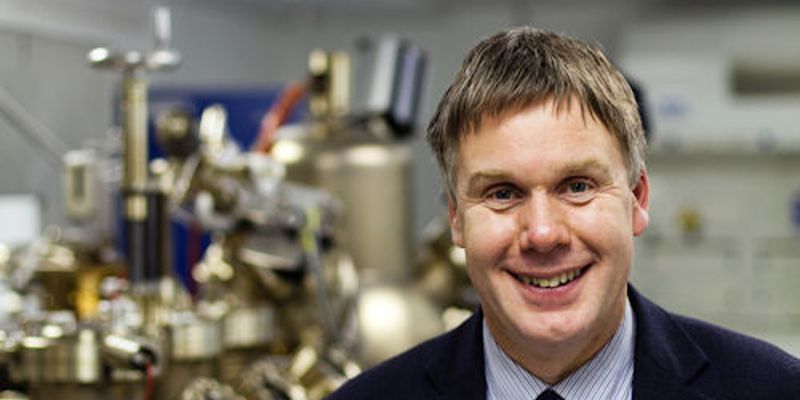
The University has appointed Professor Edmund Linfield as the first Director for the Bragg Centre for Materials Research.
Currently Chair of Terahertz Electronics at Leeds, Professor Linfield has helped establish the University as a global leader in terahertz technology.
Together with Professor Giles Davies, he was awarded the Institute of Physics Faraday Gold Medal in 2014 for his work in experimental physics.
“Professor Linfield is an outstanding appointment, with a proven track record of leading internationally-renowned research.”
Materials research
The Bragg Centre has been created to enable unprecedented advances in the discovery, creation and design of new materials.
“I am very excited to see what discoveries can be made in the coming years by the incredibly talented researchers we have here at Leeds.”
Professor Linfield said: “We advance our understanding of high-value materials through a combination of both fundamental scientific discovery and applied research, exploiting materials that are often engineered at the atomic or molecular level. We also work with industry to understand and tackle their problems.
“These challenges demand that academics work across disciplines, so the Centre brings together leaders from interconnected fields to address global problems in materials research.
“I am very excited to see what discoveries can be made in the coming years by the incredibly talented researchers we have here at Leeds.”
The Bragg Centre’s facilities, available for use by industry and academia, provide advanced capabilities for growth, fabrication, analysis and characterisation of materials.
“Our state-of-the-art experimental and analytical facilities rival the best in the UK and it is this combination of capabilities and expertise that makes Leeds special.”
A number of the facilities have been supported and funded by the Henry Royce Institute, the UK’s centre for advanced materials research and innovation.
The Royce, a government-funded, national facility, provides funding and access to facilities, aiming to support the UK manufacturing base and reduce the time to take new materials from invention to market.
The University is a founding partner of the Royce, and Professor Linfield embodies the strong relationship between Bragg and Royce with his role as academic champion for Royce’s ‘Atoms to Devices’ research theme.
Exceptional research strengths
Professor Lisa Roberts, Deputy Vice-Chancellor: Research and Innovation at the University and a Board member of the Royce, said: “Professor Linfield is an outstanding appointment, with a proven track record of leading internationally-renowned research.
“Our state-of-the-art experimental and analytical facilities rival the best in the UK and it is this combination of capabilities and expertise that makes Leeds special.
“Through Bragg, Royce and our innovation hub, Nexus, we work closely with industry to enable the commercialisation of fundamental research, and in doing so, help play a critical role in tackling the research and development challenges set by the government’s strategies.
“I am very much looking forward to working with Edmund to develop our exceptional research strengths, ensuring the University continues to be a partner of choice for collaboration, for pioneering fundamental discoveries, and for addressing applications in industry.”
Sir William Henry Bragg Building
The Bragg Centre will be based in the new Sir William Henry Bragg Building, which is due to be completed in Autumn 2020.
It is part of the University’s £96 million investment in Engineering and Physical Sciences.
The investment is creating an exceptional environment for students, and supports researchers from across engineering and physical sciences to work together to solve fundamental problems and tackle key industrial challenges.
Bragg Centre focus
The Bragg Centre for Materials Research is focusing its attention on six key areas:
· Analytical science
· Bionanotechnology
· Electronic and photonic materials
· Functional surfaces
· Multiscale materials
· Soft matter
“We are creating an incredibly vibrant PhD, postdoctoral and academic fellows community.”
Professor Linfield added: “We are creating an incredibly vibrant PhD, postdoctoral and academic fellows community here, attracting researchers from across the world to work at the forefront of these interconnected fields.
“By bringing together such a range of academics working on materials research at the University, we hope to expand rapidly our international impact.”
Further information
For media enquiries email the University of Leeds Press Office at pressoffice@leeds.ac.uk.